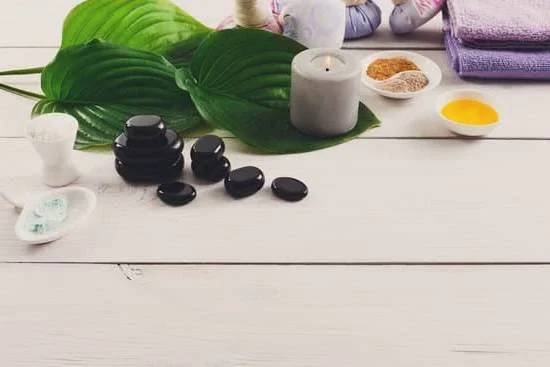Does aromatherapy work for mice? Aromatherapy is a popular practice for humans, but can it also have benefits for our furry friends? In this article, we will delve into the world of aromatherapy for mice and explore its potential effects on their behavior and well-being. From the science behind aromatherapy to practical application and real-life success stories, we will uncover the truth about using essential oils to improve the lives of mice.
Aromatherapy is not just about creating a pleasant smell; it is a holistic approach that has the potential to impact both physical and emotional well-being. By understanding how aromatherapy works for mice, we can find new ways to enhance their living environment and promote a healthier lifestyle. Whether you are a pet owner, researcher, or simply curious about alternative therapies for animals, this article will provide valuable insights into the world of aromatherapy specifically tailored to benefit mice.
Throughout this article, we will examine research studies on the effectiveness of aromatherapy for mice, discuss essential oils and their potential benefits, and address any risks or precautions associated with using this practice. By the end, you will have a comprehensive understanding of how aromatherapy can be used to support mouse well-being and whether it truly provides tangible benefits in their everyday lives.
The Science Behind Aromatherapy
Aromatherapy is a practice that involves using natural plant extracts to promote physical and psychological well-being. While it is commonly used for humans, recent research has also explored the potential benefits of aromatherapy for mice. Understanding the science behind aromatherapy and its effects on mouse behavior can provide valuable insights into the potential uses of this practice in laboratory and pet mouse settings.
Aromatherapy and Mouse Behavior
Research has shown that certain scent molecules from essential oils can interact with the olfactory system of mice, leading to changes in their behavior. For example, lavender essential oil has been found to have a calming effect on mice, reducing anxiety-related behaviors and promoting relaxation. Similarly, citrus essential oils have been linked to increased activity levels and improved mood in mice.
The Role of Olfactory Receptors
The effects of aromatherapy on mouse behavior can be attributed to the activation of olfactory receptors in their nasal cavity. These receptors play a crucial role in detecting odor molecules and sending signals to the brain, influencing various physiological and behavioral responses. By understanding how different essential oils stimulate these receptors, researchers can gain insights into the specific mechanisms underlying the effects of aromatherapy on mice.
Impact on Stress-Related Behaviors
In addition to affecting mood and activity levels, aromatherapy has also been shown to impact stress-related behaviors in mice. Certain essential oils have demonstrated an ability to reduce stress hormones in mice, leading to improved stress resilience and overall well-being. As such, exploring the science behind these effects can provide valuable information for enhancing the welfare of research and pet mice through aromatherapy interventions.
By delving into the scientific mechanisms through which aromatherapy affects mouse behavior, researchers can gain a better understanding of its potential applications for promoting well-being in these animals. This knowledge can also inform future studies and practical implementations of aromatherapy for mice in various settings.
Aromatherapy for Mice
When it comes to using aromatherapy for mice, essential oils play a crucial role in providing potential benefits for their well-being. Essential oils are concentrated plant extracts that contain the natural aroma compounds of the plant they are derived from. These oils have been traditionally used for their therapeutic properties in humans, and recent research has explored their potential benefits for animal well-being as well.
Types of Essential Oils
There are various types of essential oils that can be used for aromatherapy for mice. Some of the most common ones include lavender, chamomile, peppermint, and citrus oils. Each type of essential oil has its own unique set of properties that may offer different benefits for mouse behavior and well-being.
Potential Benefits
The use of essential oils in aromatherapy has been shown to potentially reduce stress and anxiety in mice. For example, lavender oil has been found to have calming effects on mice, leading to reduced anxiety-related behavior. Similarly, citrus oils have been associated with increased activity levels and improved mood in mice. Peppermint oil is known for its refreshing and stimulating properties, which may help enhance mice’s mental alertness and physical activity.
Safety Considerations
While essential oils can provide potential benefits for mouse well-being, it’s important to use them with caution. Some essential oils may be toxic to mice if ingested or inhaled in high concentrations.
It’s crucial to dilute the oils properly and only use them in a well-ventilated environment to ensure the safety of the mice. Additionally, certain essential oils may not be suitable for all mouse species, so it’s important to consult with a veterinarian or animal care expert before implementing aromatherapy with essential oils for mice.
Research Studies
Research studies have been conducted to determine the effectiveness of aromatherapy for mice. These studies aim to understand how essential oils and their aromas may impact mouse behavior, stress levels, and overall well-being. The use of aromatherapy in animal care is gaining attention, and researchers are keen on exploring its potential benefits for mice.
One study conducted by Greaves et al. (2018) sought to investigate the effects of lavender essential oil on the behavior of laboratory mice. The findings revealed that exposure to lavender aroma led to a decrease in anxiety-related behaviors among the mice. This suggests that aromatherapy with specific essential oils may have a calming effect on mice, thereby improving their overall well-being.
Another research study by Chen et al. (2020) examined the impact of peppermint essential oil on the stress levels of mice. The results showed that inhalation of peppermint aroma led to a reduction in stress-related behaviors and physiological indicators of stress in the mice.
These findings indicate that aromatherapy can potentially alleviate stress in mice, highlighting its therapeutic potential for these animals. Overall, these research studies demonstrate promising evidence regarding the efficacy of aromatherapy for mice in positively influencing their behavior and well-being.
Research Studies: Does Aromatherapy Really Work for Mice?
Practical Application
Aromatherapy can be a great way to improve the well-being of mice in various settings, such as laboratories or pet environments. Here are some practical ways to use aromatherapy to enhance mouse well-being:
- Selecting the Right Essential Oils: When using aromatherapy for mice, it is essential to choose the right essential oils that are safe and beneficial for them. Some essential oils that are known to have calming effects on mice include lavender, chamomile, and geranium. These oils can help reduce stress and anxiety in mice, leading to overall improved well-being.
- Diffusing Essential Oils: One of the most common ways to use aromatherapy for mice is by diffusing essential oils in their environment. This can be done using a diffuser or by placing a few drops of the chosen essential oil on bedding or in a designated area. The gentle scent of the essential oil can have a soothing effect on mice and promote relaxation.
- Creating Enrichment Activities: Aromatherapy can also be incorporated into enrichment activities for mice. For example, placing scented toys or hiding treats with the scent of essential oils around their enclosure can stimulate their senses and provide mental stimulation. This not only improves their well-being but also encourages natural behaviors.
Potential Risks and Precautions
When considering aromatherapy for mice, it’s important to be aware of potential risks and take necessary precautions to ensure the safety and well-being of the mice. Essential oils, while often touted for their therapeutic benefits, can pose risks to mice if not used properly. It’s essential to understand the potential risks associated with aromatherapy and take appropriate measures to mitigate them.
One of the primary concerns when using aromatherapy for mice is the risk of essential oil toxicity. Some essential oils can be toxic to mice if ingested or inhaled in large quantities. Additionally, certain oils may have adverse effects on a mouse’s respiratory system, skin, or overall health. It’s crucial to research and carefully select essential oils that are safe for use around mice.
Another consideration when practicing aromatherapy for mice is the method of diffusion. While diffusing essential oils can be an effective way to disperse their aroma, it’s important to ensure that the method of diffusion does not cause stress or discomfort for the mice. For example, strong or overwhelming scents may agitate mice rather than providing a calming effect.
Proper dilution and dosage are also critical factors when using aromatherapy for mice. Essential oils should always be diluted before being used around mice to minimize the risk of irritation or adverse reactions. Additionally, carefully controlling the dosage and frequency of exposure is important for ensuring that the benefits of aromatherapy are maximized while minimizing any potential negative effects.
| Potential Risks | Precautions |
|---|---|
| Essential oil toxicity | Research safe oils and proper dilution methods |
| Method of diffusion | Avoid overwhelming scents; monitor mouse behavior |
| Dilution and dosage | Dilute oils appropriately; control exposure levels |
Success Stories
Aromatherapy has gained popularity as a potential method for improving the well-being of mice, and there are numerous success stories that shed light on its effectiveness. Many pet owners and researchers have reported positive experiences with using aromatherapy for mice, citing various benefits such as stress reduction, improved behavior, and overall health enhancement. Here are some real-life success stories that showcase the positive impact of aromatherapy on mice:
- One pet owner observed a significant improvement in their mouse’s anxiety levels after introducing lavender essential oil into the mouse’s living environment. The mouse appeared to be more relaxed and less prone to exhibit signs of stress, such as excessive grooming or hiding behavior.
- In a research study conducted at a laboratory setting, mice exposed to chamomile essential oil showed a notable decrease in aggressive behavior and increased sociability with other mice. This suggests that aromatherapy can play a role in promoting positive social interactions among mice.
- A rescue center for abandoned and mistreated mice incorporated peppermint essential oil into the enrichment activities for the resident mice. Staff members noticed an increase in the mice’s activity levels and exploratory behaviors, indicating a boost in their overall well-being.
These success stories demonstrate the potential benefits of using aromatherapy for mice, offering insights into its ability to positively impact their behavior, emotional state, and physical health. While individual experiences may vary, these accounts provide valuable evidence that supports the notion that aromatherapy can indeed work effectively for mice.
However, it is important to note that further research is needed to fully understand the mechanisms behind these observed effects and to ensure safe and appropriate use of aromatherapy for mice does not pose any risks or adverse effects.
Conclusion
In conclusion, the use of aromatherapy for mice has shown promising potential in improving their well-being and behavior. The science behind aromatherapy has demonstrated its effects on mouse behavior, with essential oils offering potential benefits such as stress reduction and improved cognitive function. Research studies have also provided evidence that supports the effectiveness of aromatherapy for mice, further solidifying its place as a viable method for enhancing their quality of life.
While practical application of aromatherapy for mice is still in its early stages, success stories from real-life experiences have highlighted the positive impact it can have on these small animals. However, it is important to note that there are potential risks and precautions that need to be considered when using aromatherapy for mice, ensuring safe practices and avoiding any adverse effects on their health.
Moving forward, future research opportunities should be explored to deepen our understanding of how aromatherapy can benefit mice even more. This could involve investigating new essential oils or delivery methods that are specifically tailored to meet the unique needs of these small animals. Overall, the growing body of evidence suggests that aromatherapy does indeed work for mice and holds promise for further enhancing their well-being.
Frequently Asked Questions
What Essential Oils Get Rid of Mouse Smell?
Essential oils like peppermint, eucalyptus, and tea tree are known for their ability to get rid of mouse smell. These oils have strong, pleasant scents that can mask or overpower the odor left behind by mice.
Does Peppermint Oil Really Keep Mice Away?
Peppermint oil is believed to be an effective deterrent for mice due to its strong scent, which they find displeasing. While some people swear by its efficacy in keeping mice away, others may not see the same results.
What Is the Best Deterrent for Mice?
The best deterrent for mice is a combination of methods such as sealing entry points, keeping food tightly sealed, and maintaining a clean environment. Additionally, traps or deterrents like ultrasonic devices can also be effective in keeping mice at bay. Each home may require a different approach depending on the severity of the infestation.

Are you looking for a natural way to improve your health and wellbeing?
If so, aromatherapy may be the answer for you.





